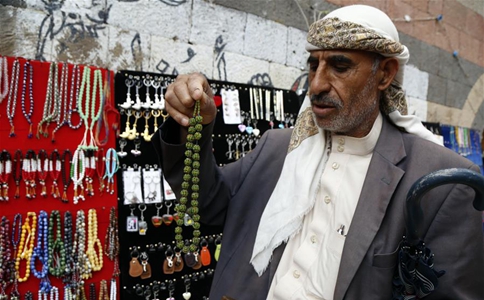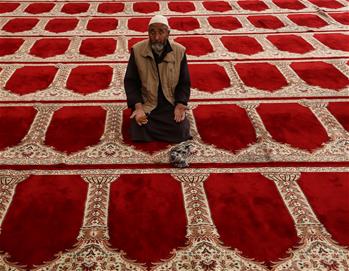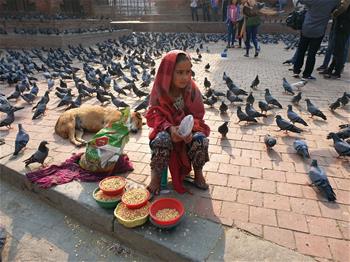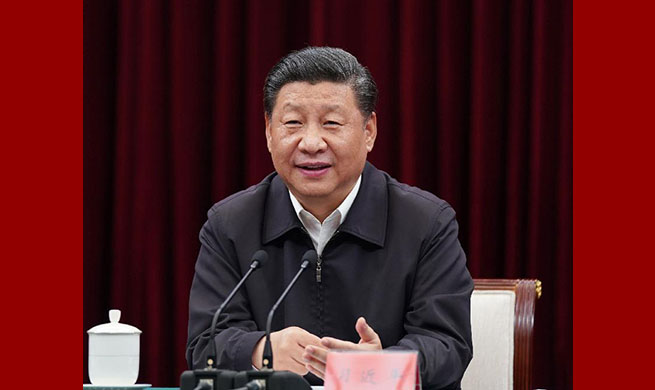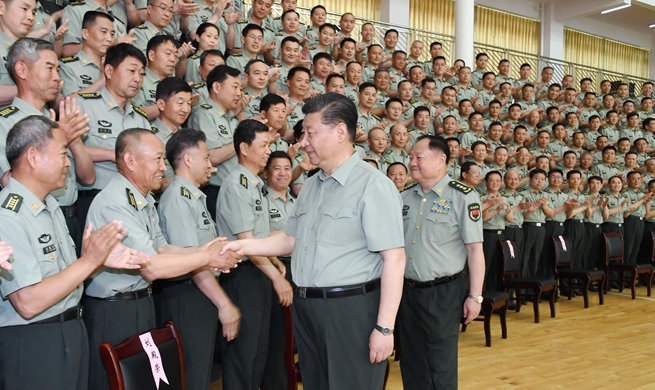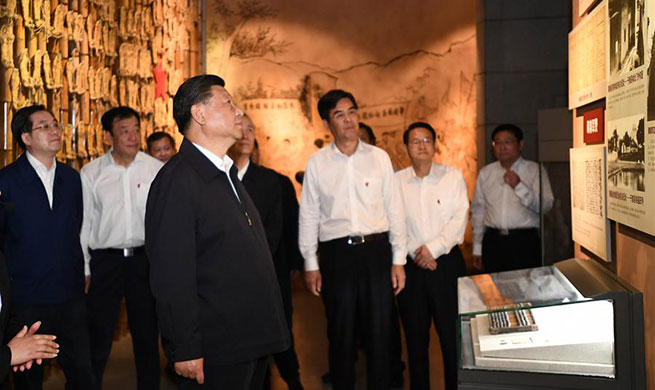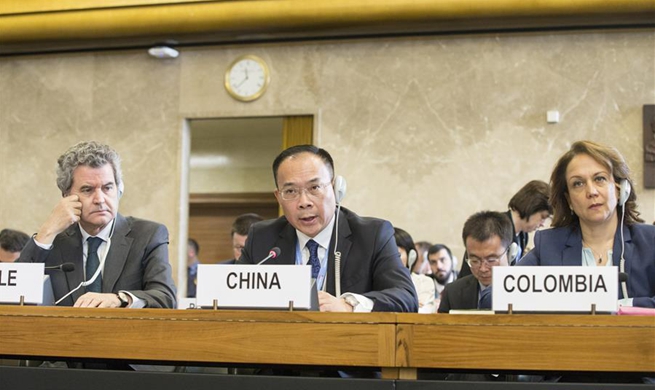MONTEVIDEO, May 22 (Xinhua) -- The reform and opening-up of China since 1978 is a great revolution in the nation's history, said a Chinese diplomat on Tuesday at the inauguration here of a photographic exhibition.
The exhibition about this unprecedented period in the Chinese history was opened at the Catholic University of Uruguay (UCU) and will run until June 15.
"Hopefully we will deepen mutual understanding through these photographs," said Zhang Wenwei, the charge d'affaires of the Chinese embassy in Uruguay.
Zhang mentioned the remarkable advances in China during the past 40 years, such as the growth of the gross domestic product (GDP) at an average rate of 9.5 percent, as compared with the global average of 2.9 percent.
Additionally, its population living in poverty decreased by 740 million, he said.
"The bilateral relations between China and Uruguay are already very close, however for many Uruguayans China is not yet a well-known country," said the Chinese diplomat.
It is hoped that the more than 120 photos on display will propel the two sides to mull efforts to further strengthen bilateral exchanges in politics, economy, culture, education and sports, he said.
"China is currently Uruguay's main trading partner. More than half of the exported Uruguayan meat is served on the table of the Chinese people, and more than half of the mobile phones in the hands of Uruguayans are produced in China," Zhang said.
For his part, the dean of the faculty of business administration at the UCU, Ignacio Bartesaghi, told Xinhua that the exhibition captures a great period in the history of the Asian country.
"Here we are showing these photos of the past 40 years, but it is something that comes from far back, it is a civilization of 5,000 years," he said.
Bartesaghi explained that the UCU has been focusing on China so that "students can understand the dimension of the transformation" in this four decades, "but with a vision of what is going to happen in the next 40 years."
"To understand what will be the role that China is going to play or to understand the current context, we must understand what has happened in the last 40 years," he said.
"We are convincing our students to travel to China, to continue their studies there, and that they see this transformations live and direct, because it will change their way of thinking," said Bartesaghi.






